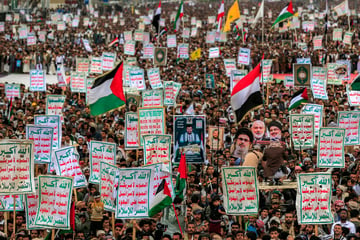World Water Day: Conflicts fueled as billions lack clean drinking water
Paris, France - Increasing water scarcity can fuel conflicts around the world, the United Nations has warned.

Globally, 2.2 billion people were without access to safely managed drinking water and 3.5 billion lack access to safely managed sanitation, according to report by the United Nations Educational, Scientific and Cultural Organization (UNESCO) released for World Water Day.
One in two people around the world suffered from water scarcity for several months of the year, UNESCO Director-General Audrey Azoulay said.
"And in some parts of the world, this water scarcity has become the rule, rather than the exception," she said.
"We know the consequences of such a situation: water shortages not only fan the flames of geopolitical tensions, but also pose a threat to fundamental rights as a whole, for example by considerably undermining the position of girls and women."
Access to water is a "core challenge"
Azoulay said access to water and the preservation of water resources were "core challenges" for societies.
Achieving universal access to safe drinking water, sanitation, and hygiene in 140 low- and middle-income countries would cost approximately $1.7 trillion from 2016 to 2030, or $114 billion per year, the report estimated.
The report is published annually to mark World Water Day, which this year focuses on the theme of "Water for Prosperity and Peace."
"The theme of World Water Day 2024 is therefore a call to action – to sustainably manage water, to reconnect with our planet and, ultimately, to build peace," Azoulay said.
Cover photo: 123RF/mila103
